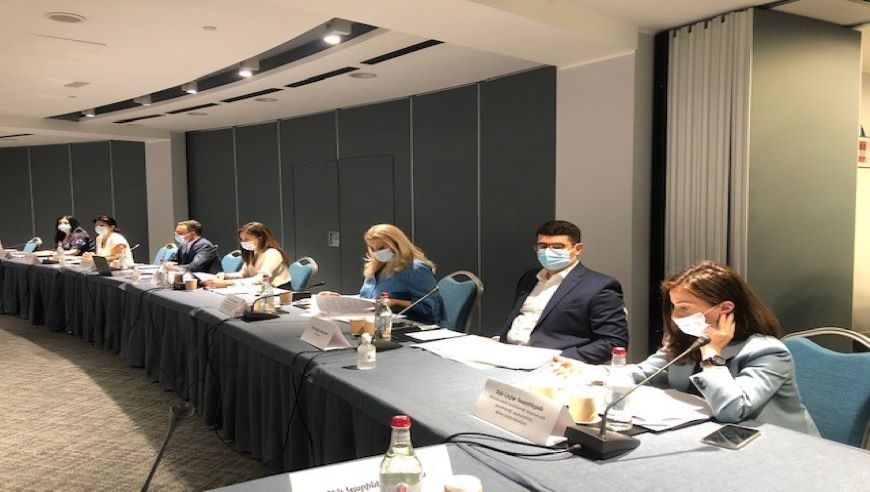On 17 September 2021 the discussion of the draft law on mediation took place in the framework of the project "Support to the judicial reform – enhancing the independence and professionalism of the judiciary in Armenia."
One of the Project’s components is focused on the improvement of the practical application of mediation in Armenia to facilitate access to justice and for the benefit of the public, as well as the reduction of the backlog of cases.
Within the framework of legal and judicial reforms in Armenia, the Ministry of Justice of the Republic of Armenia has developed a package of draft amendments to the Law of the Republic of Armenia on Mediation and other related laws, on which within the framework of the project an Opinion was presented in the light of the Council of Europe mediation standards and the best practices of the Council of Europe member states.
During the discussion the main directions of the reforms proposed by the draft package developed by the Ministry of Justice of the Republic of Armenia and the Opinion of the Council of Europe national consultant on the draft package were presented. During the meeting the discussions were also held on the possible impact of the implementation of mandatory mediation on the development of the sector, as well as the peculiarities of mediation appointed by the court and online mediation. The participants exchanged their views on mediator’s qualification, selection and registration.
The discussion was attended by the representatives of the Ministry of Justice, Court of Cassation, Civil Court of Appeal, First Instance Court of General Jurisdiction of the city of Yerevan, Self-regulating organisation of mediators of Armenia, Office of Financial System Mediator, Public Services Regulatory Commission and advocates.
This event was organised in the framework of the project ''Support to the judicial reform – enhancing the independence and professionalism of the judiciary in Armenia,'' funded by the European Union and the Council of Europe in their Partnership for Good Governance II (2019-2022).




